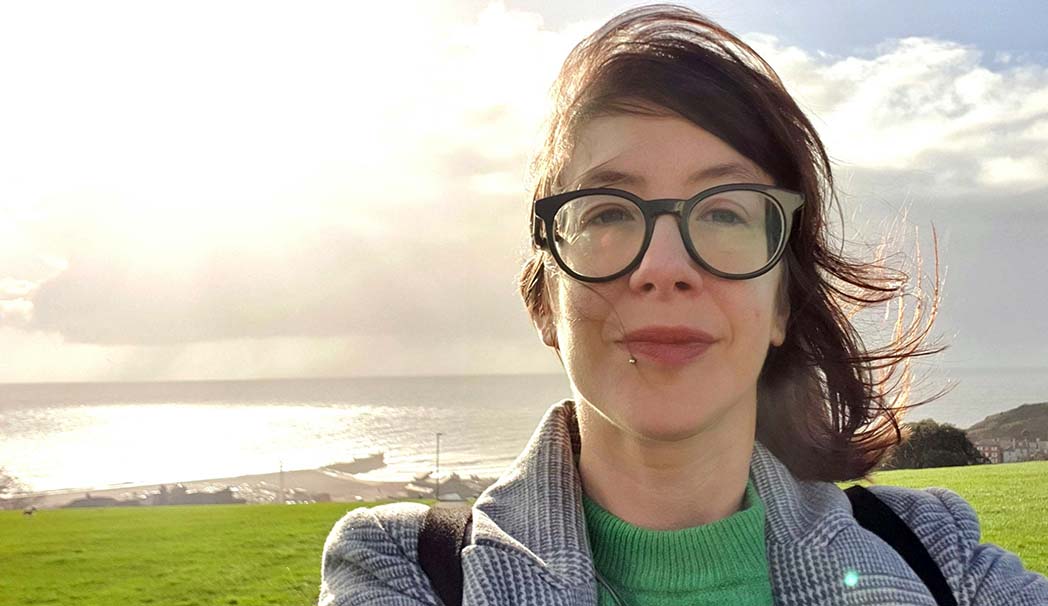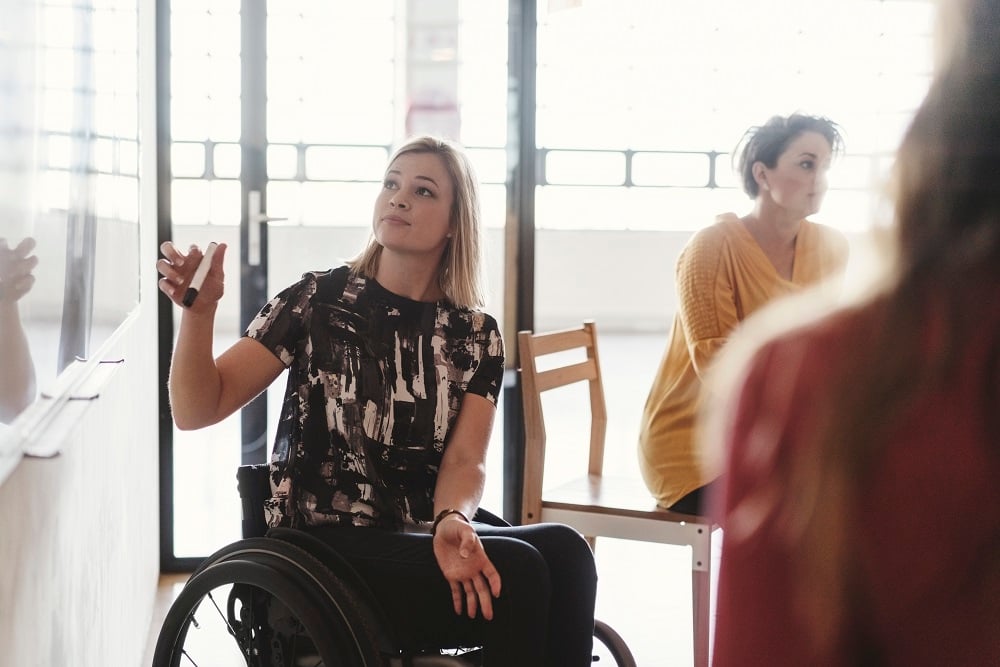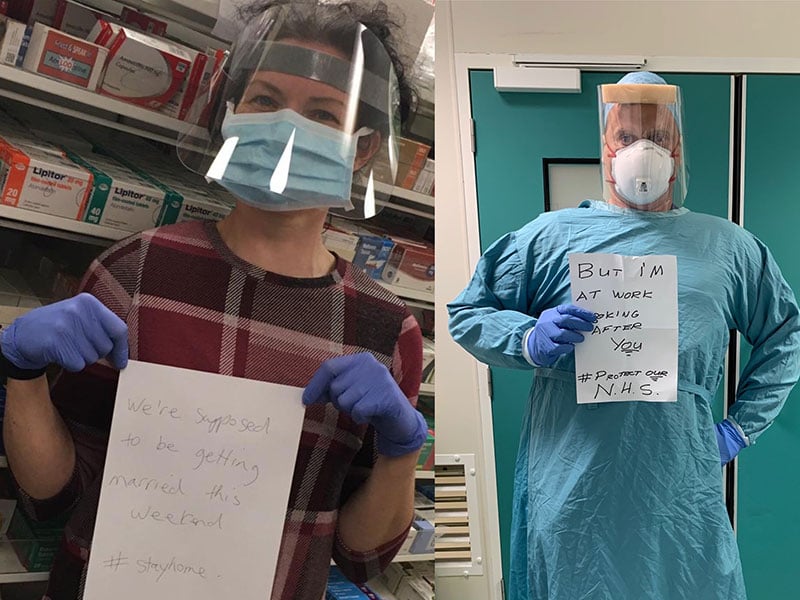For disability history month (16 November – 15 December) Emma, a registered occupational therapist, shares the story of her disability and its impacts on her life

According to the CDC, moderate and severe traumatic brain injury (sTBI) can lead to a lifetime of physical, cognitive, emotional, and behavioural changes. I survived a severe traumatic brain injury at the age of 16.
Through the challenges and experience that came afterwards, I became motivated to train as an occupational therapist. I wanted to support others, and felt that occupational therapy was the most all-encompassing and holistic profession through which to do that.
I have recently been offered employment as a band 5 Occupational Therapist at a local mental health trust, in a role that will involve assessments, the running of groups as interventions, and person-centred support.
My journey
In 2001, when I was 16, I suffered a severe traumatic brain injury (sTBI) and went into a coma for three days. It was measured at 6 on the Glasgow Coma Scale.
I was asleep for three weeks, spent five weeks in hospital, and underwent three months of physiotherapy. I suffered from severe fatigue, severe cognitive challenges, speech loss, double vision (which lessened after 6 months), right hemi paralysis including my face, and right tactile sensory loss.
After I came out of hospital I was still suffering from severe fatigue, double vision, severe right hemi weakness and ataxia (including on the lower right side of my face). I had no co-ordination or balance, had right side sensory loss/numbness, left side paraesthesia, and for mobility I needed a wheelchair or assistance from two people.
A year later I still suffered with many of these effects, however I now wore glasses, and was independently mobile, but had many falls. They now also included challenges with writing, executive functions, memory, attention, concentration, insight, emotions (depression and anxiety), depersonalisation, behaviour, and self-esteem.
Today, in 2023, I am independently mobile and able to jog. I am right hand dominant but my left is more accurate, and I still wear glasses. I have attained, through my university, diagnoses of dyslexia and features of dyspraxia (assumed to be acquired).
My everyday life is ordered by the coping mechanisms that get me through. For writing, spelling, grammar and word finding, I use assistive technologies like the spell check and templates that are built into Word and Grammarly. I also use techniques like delaying, describing and association.
For my organisation and planning I use diaries, a colour-coded calendar, alarms, reminders; I develop a schedule and routine; I list my work and personal tasks daily, prioritising those that I must do, need to do or want to do; I order events; I allocate times; I delegate; and I make sure I keep my own time in balance.
For my learning and memory, I repeat and rehearse, often learning by writing, hearing, speaking and using visuals. I create associations; I use technology; I use books; I reflect. For my concentration and attention, I use space and quiet; I minimise distractions; I take breaks; I set targets.
For fatigue, I space my day out: I pace myself, set realistic times, set my structure/routine, take breaks, and make sure that water and/or food is always available. For my emotions and mental health, I use sleep hygiene, a good diet, exercise, breathing exercises, breaks, organisation, keeping a diary and reflecting, which can reframe my thoughts, and am mindful of the environments I am in.
The Royal College of Psychiatrists states that non-visible disabilities can include traumatic brain injury, learning difficulties (such as dyslexia), and mental health disorders. They report that, in 2020, 14 million people (21%) in the UK described themselves as having a disability, of which an estimated 70% were non-visible.
When applying to university for my occupational therapy degree, I reported my sTBI and its ‘hidden disabilities’. I had an interview but was not accepted. A few weeks later, when I was finishing a job in insurance and beginning as an autism support worker, I was offered a place on the course.
The journey has given me many positive experiences, but there were challenges along the way in areas such as writing, memory, fatigue,and mental health I had an official test for dyslexia near the start of the course and was supported with a weekly mentor and tutor.
From completing my degree in occupational therapy, I have been able to fully identify my residual challenges and complete a comprehensive list of coping strategies. I am also better equipped to support others with hidden or non-visible disabilities.
I joined the HCPC Register after positive discussions with an advisor from the Royal College of Occupational Therapists (RCOT), and affirming with myself that my residual challenges can be adapted, limited or stopped, if needed, in order to remain safe and effective.
During my many years of physical, cognitive, and psychological rehabilitation, I have worked through different stages of grief and come into what Kübler-Ross called acceptance. In more recent years, I have felt I have achieved ‘post-traumatic growth’, as I have acknowledged and learnt lessons of loss and resilience.
I changed employment throughout my degree, including being on the bank for my local physical and mental health trusts, and volunteering at a local community brain injury rehabilitation centre. Now I am starting out on the next significant chapter, as an occupational therapist working for the local mental health trust. On their person specification, they stated that it was desirable for the applicant to have ‘lived experience of mental health issues’.
As I step into my new role, I know I am yet to fully experience the positive contribution of individuals with disabilities to the healthcare workforce - but I plan to be part of it.
Information and support
- Published:
- 23/11/2023
- Resources
- In your words
- Audience
- Registrants
- Profession
- Occupational therapists




